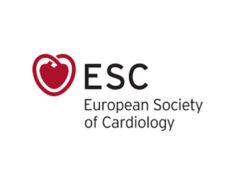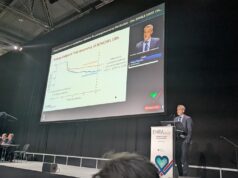The Scottish Medicines Consortium (SMC) has accepted the novel oral anticoagulant apixaban (Eliquis, Bristol-Myers Squibb / Pfizer) for use within NHS Scotland for the prevention of stroke and systemic embolism in adult patients with non-valvular atrial fibrillation with one or more risk factors.
The SMC concluded that apixaban was superior to warfarin at preventing stroke or systemic embolism and was associated with significantly fewer major bleeds.
According to the National Health System (NHS) Atrial fibrillation is the most common heart rhythm disorder, affecting over 60,000 people in Scotland over the age of 40. The NHS Scotland also estimates that seven per cent of all strokes in Scotland are caused by atrial fibrillation and that less than half (47%) of atrial fibrillation patients at higher risk of stroke are receiving warfarin anticoagulation therapy. Identifying those aged over 40 with atrial fibrillation and treating them with anti-clotting treatments could prevent 960 strokes in Scotland every year, therefore preventing 320 deaths and avoiding significant disability for another 320 stroke survivors.
“The SMC acceptance of apixaban is an important step forward for patients with atrial fibrillation in Scotland,” said Derek Connelly, consultant cardiologist in the Royal Infirmary, Glasgow and representative of the Atrial Fibrillation Association. “Many Scottish patients are being treated with the anticoagulant warfarin which, needs on-going INR monitoring and can have many undesirable reactions with other drugs and diet. The availability of a new treatment option that does not require INR monitoring may help decrease the impact atrial fibrillation has on the quality of life of patients, their families and carers in the prevention of stroke.”
For non-valvular a related strokes, apixaban has been shown to be more effective than warfarin at preventing strokes or systemic embolism, has been associated with less major bleeding and resulted in more lives saved. The SMC guidance also notes that apixaban requires no therapeutic monitoring, which would reduce the workload of services associated with warfarin monitoring and potentially reduce the risks to the patient associated with poor INR control. The guidance also notes that apixaban is associated with fewer interactions than warfarin.
Amadou Diarra, VP and General Manager, UK and Ireland, from Bristol-Myers Squibb said on behalf of the Alliance, “The SMC’s acceptance confirms the value of apixaban as a clinically and cost-effective oral anticoagulant for the prevention of stroke in patients affected by non-valvular atrial fibrillation. The risk of stroke in these patients is a serious public health concern and through this new treatment option, the Alliance of Pfizer and Bristol-Myers Squibb remains committed to helping reduce the incidence of stroke in patients living with non-valvular AF.”
The National Institute for Health and Clinical Excellence (NICE) has also issued a Final Appraisal Determination (FAD) recommending apixaban as an option for the prevention of stroke and systemic embolism in adult patients with non-valvular atrial fibrillation with one or more risk factors. The FAD forms the basis of the final guidance to the NHS in England and Wales and, pending no change, is expected in February, 2013. Once the final guidance is published the NHS will be legally obliged to implement it within 90 days. Both SMC and NICE have already accepted apixaban for the prevention of venous thromboembolic events (VTE) in adult patients who have undergone elective hip or knee replacement surgery.












